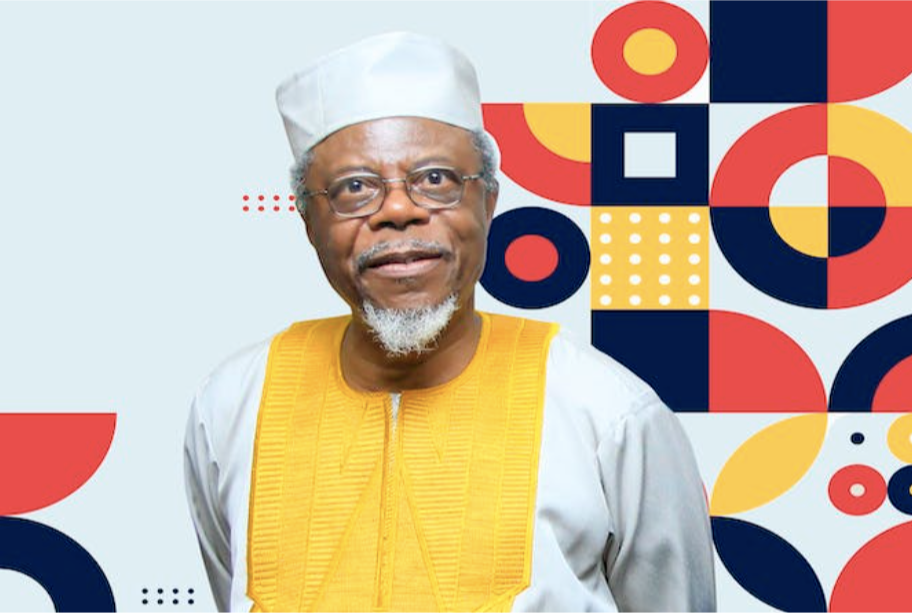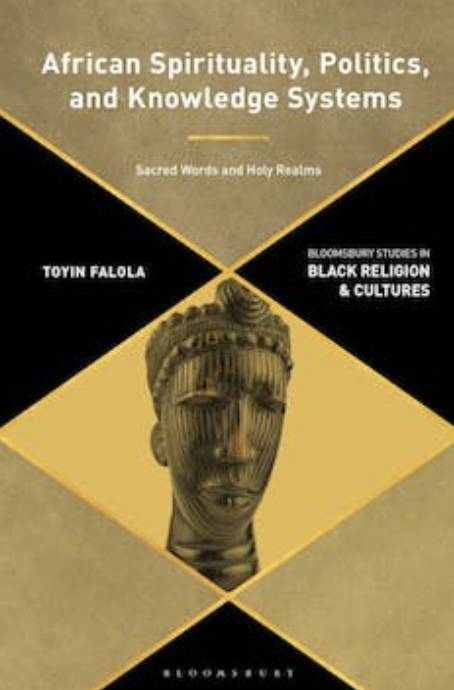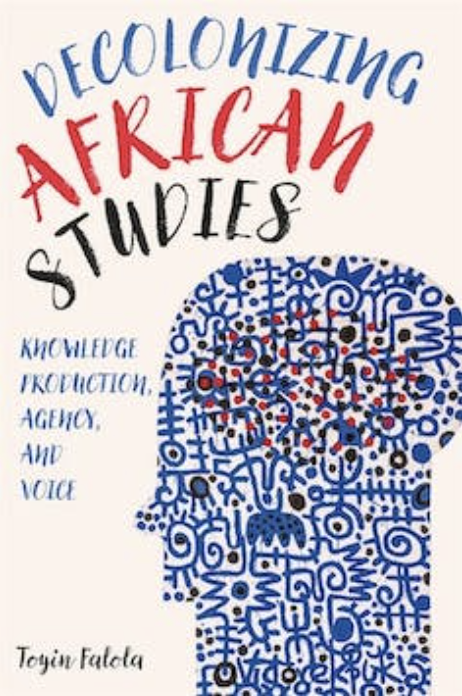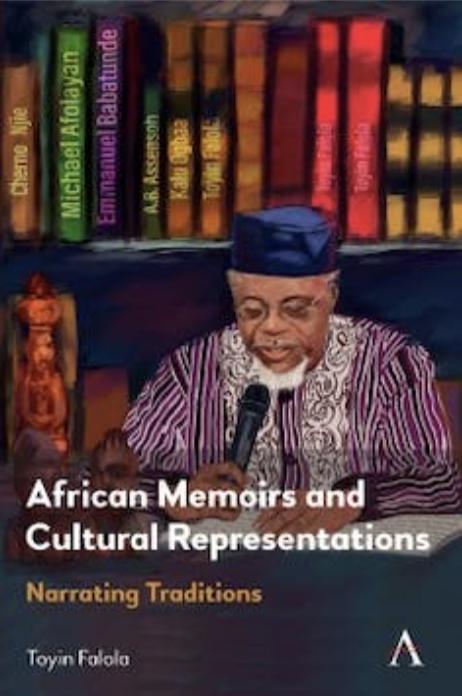BLACK PEOPLE READ
Three Books That Distinguishes Toyin Falola as Nigeria’s famous decolonial scholar

Toyin Falola has turned 70. Image courtesy Olusegun Olopade
By Sasnya Osha
Toyin Falola, distinguished professor of history, is one of Africa’s most accomplished intellectuals. Born Oloruntoyin Falola in 1953 in the Nigerian city of Ibadan, he grew up in a sprawling, polygamous household that practiced Islam, Christianity and ancient Yoruba spirituality.
This confluence of multiple worldviews and religions reflects in his thinking and in his massive academic output. Falola has produced something like 200 books in all areas of the human and social sciences, and travels widely to deliver lectures at conferences and public events.
Africa and its diasporas (including Africans in the US, Brazil, Cuba and the Caribbean) are his overriding concern and sites of study. In Falola’s handling, Africa is endlessly fascinating and resourceful, both culturally and intellectually.
Since he is so productive, it’s difficult to offer a cohesive account of his multifaceted work. In the process of working on a book about Falola, I think perhaps the best way to understand his impact is to identify his core values and philosophies and how they recur across his recent output.
His 70th birthday has been celebrated with a renewed flurry of books. I’ll focus on just three of them here.

Bloomsbury
1. African Spirituality, Politics, and Knowledge Systems
Published in 2022, African Spirituality, Politics, and Knowledge Systems: Sacred Words and Holy Realms was in part inspired by Falola’s interactions with a Nigerian political scientist, Samuel Oloruntoba. Falola used Oloruntoba, who engages in intense late night prayer sessions, as a sounding board in writing the book.
Here, Falola is interested in the spiritual power of the spoken word, a concept not only familiar to Christianity and other religions, but also to Nigeria’s Yoruba spirituality – in this case ogeed, a ritual form of incantation. The spoken word is seen as being imbued with life and power and therefore has the ability to transform lives.
While Falola explores African spiritual formations, in the book he also seeks links to global cultural practices. In the process he affirms our common humanity and the continuities across cultures. He draws links between Christian worship and Orisa spirituality, a religion that is polytheistic (worshipping many gods) and is practiced in south-west Nigeria, parts of Benin and Togo. It was also spread across the world through the transatlantic slave trade.
In this book, Falola is refocusing our attention on the primal power of the spoken word as an agent of consciousness and transformation.
2. Decolonizing African Studies
Also in 2022, Decolonizing African Studies was released. This book is particularly relevant for the South African context. The #FeesMustFall student protest movement that grew out of the University of Cape Town as part of an attack on the legacy of the arch-colonialist Cecil John Rhodes became a nation-wide campaign. It sparked fervent debates on decolonization and the institutional legacies of apartheid’s white minority rule.
European colonialism had a devastating impact on the African continent. Slavery, colonial rule and neocolonialism, which is a covert and often non-violent form of ongoing colonialism, had a similar impact on all African communities.
Indeed what these harmful encounters did to the African self was to effect a schism or disconnect within it, which has resulted in many forms of identity crisis –

Boydell & Brewer

2. Decolonizing African Studies
Also in 2022, Decolonizing African Studies was released. This book is particularly relevant for the South African context. The #FeesMustFall student protest movement that grew out of the University of Cape Town as part of an attack on the legacy of the arch-colonialist Cecil John Rhodes became a nation-wide campaign. It sparked fervent debates on decolonization and the institutional legacies of apartheid’s white minority rule.
European colonialism had a devastating impact on the African continent. Slavery, colonial rule and neocolonialism, which is a covert and often non-violent form of ongoing colonialism, had a similar impact on all African communities.
Indeed what these harmful encounters did to the African self was to effect a schism or disconnect within it, which has resulted in many forms of identity crisis –
While Falola explores African spiritual formations, in the book he also seeks links to global cultural practices. In the process he affirms our common humanity and the continuities across cultures. He draws links between Christian worship and Orisa spirituality, a religion that is polytheistic (worshipping many gods) and is practiced in south-west Nigeria, parts of Benin and Togo. It was also spread across the world through the transatlantic slave trade.
In this book, Falola is refocusing our attention on the primal power of the spoken word as an agent of consciousness and transformation.

Anthem Press
3. African Memoirs and Cultural Representations
The most recent major book by Falola is African Memoirs and Cultural Representations, released in 2023. In this work, Falola analyses the memoirs of grossly under-studied west African writers who worked largely in the traditional vein – that is, within the perspectives of precolonial west African thinking.
In this manner, African perspectives, beliefs and norms are recuperated as a way of furthering a decolonial project. In addition, the book highlights the nature and purity of the African voice beyond the colonial framework. In other words, what it means to hear African voices outside the strictures or filters of colonial thought systems.
What these three books do is to outline Falola’s positions on a global decolonial project. He has also recently co-edited the Palgrave Handbook on Islam in Africa and a multi-volume book project on women’s studies and female agency in Africa. Such is the scope of this African scholar.
Falola’s copious research outputs debunk the fallacy that Africa was without history, consciousness or mind. Such myths were promoted in the grand narratives of colonialism and the European imperial project. And more importantly, Falola’s work serves as a powerful antidote to the constant onslaughts of afropessimism and probably by extension, anti-blackness in the contemporary age.
Newsletter
Subscribe to our bi-weekly newsletter and be the first to Receive New Updates.
Your comments, ideas, and thoughts matter.
Drop us a line: